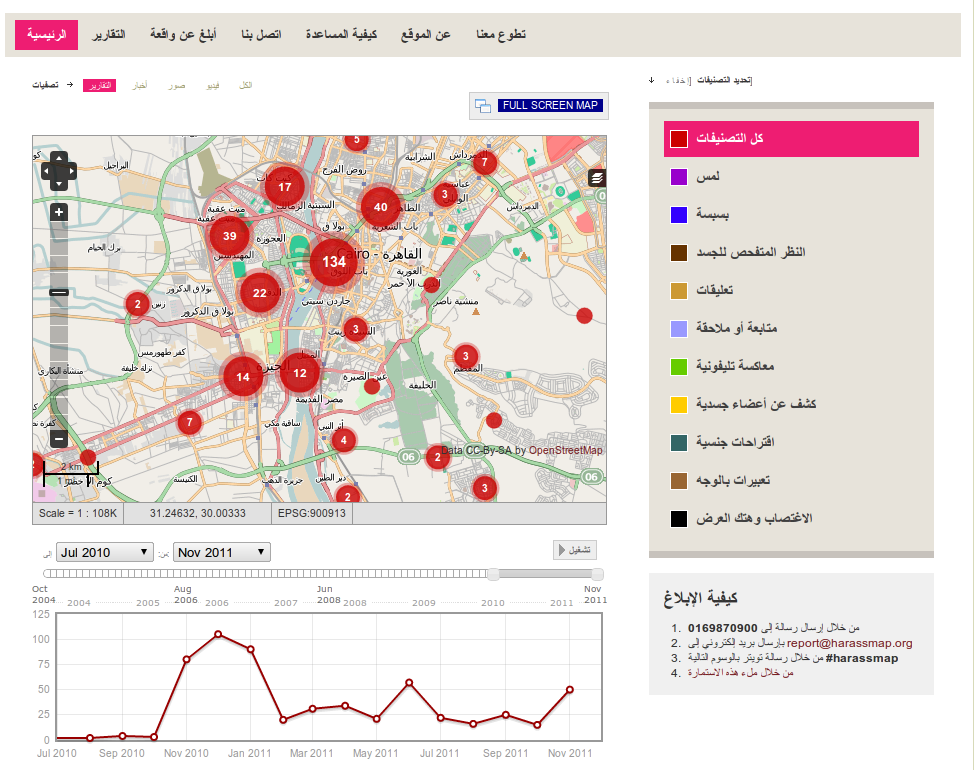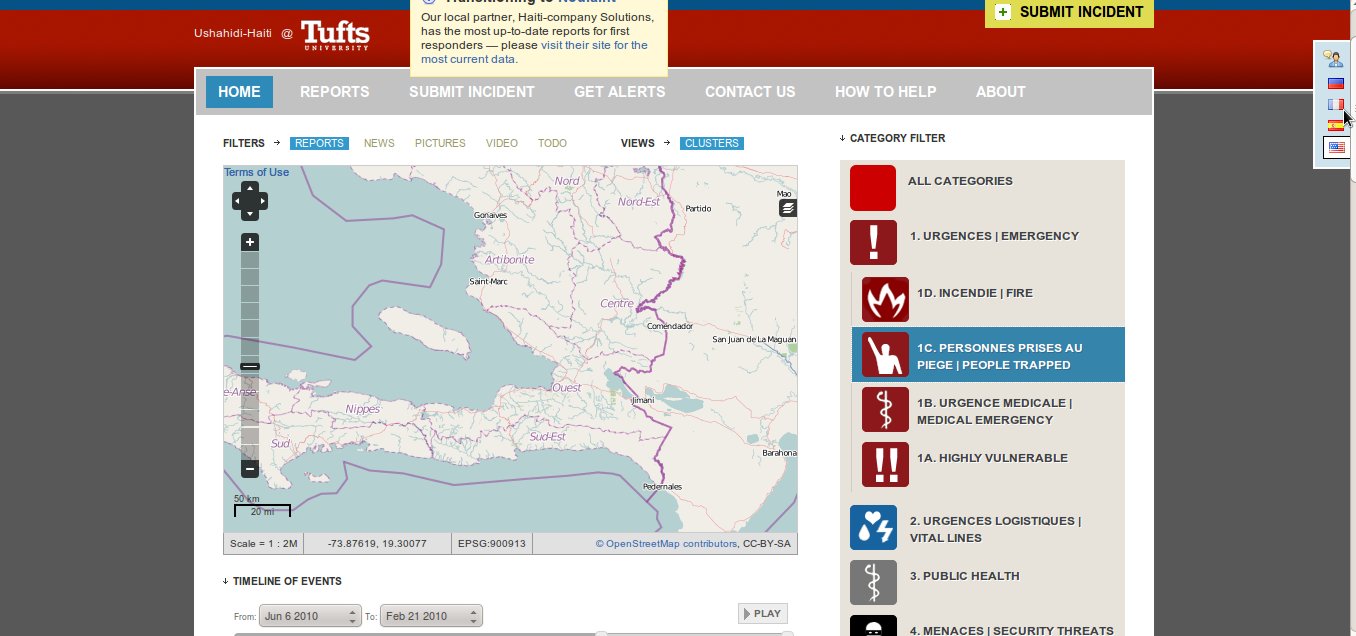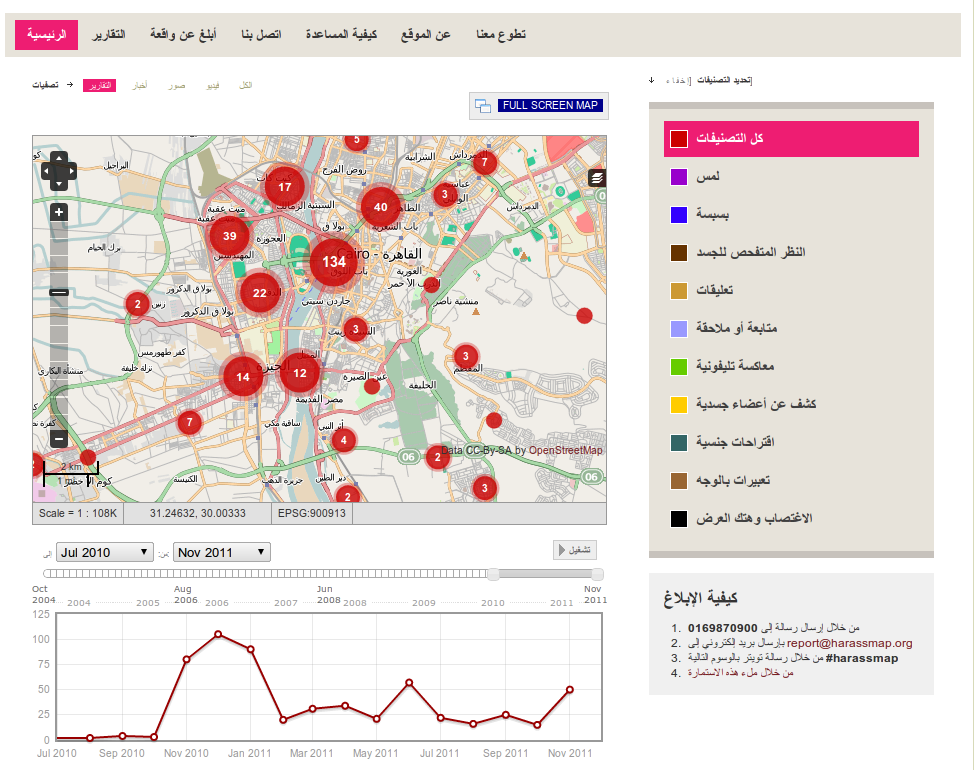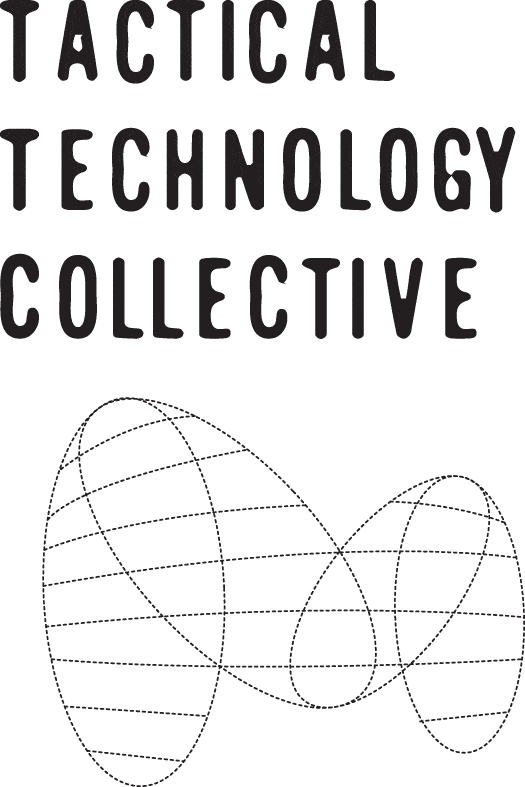




This is a web site that was built to enable citizens to both report and get alerts about violent incidents happening during elections in Kenya in 2007. Since then, it has been developed by a non-profit organisation into a general software tool that can be used to collect and display any sort of information that has a location or a time. This could be elections, military conflicts, civil emergencies like fires or floods, corrupt practices or anything else of public concern.
Ushahidi is based on the idea that a better picture of what is going on can be created by people collaborating to gather and share information. Adding data to Ushahidi can be done privately, or involving the public – through a method that has become known as 'crowd-sourcing'. Ushahidi can take in information from different sources, including users adding information via the website, or through mobile phones via SMS text or voice messages. Ushahidi's great strength is in this easy blend of different mobile and online technologies, with a focus on interacting visually to discover information.

it's specifically design to show data about events and incidents, and you can create a map very quickly by using Crowdmap, a service provided by Ushahidi.
the need to invest in promoting your project to get enough people to use it so that the information is both useful and can be verified.
Gentle
Yes, it is used online through a web browser.
You can make one thing in Ushahidi: a body of information about a specific situation that unfolds geographically over time. Setting up Ushahidi yourself requires knowledge of web servers and mobile phone gateways. The best way to get moving quickly is to use Ushahidi's free service, which is called CrowdMap. Adding information to Ushahidi incident by incident is driven by clicking on a map to locate an incident and then adding in additional information describing what happened. In addition, reports can be submitted by email, through SMS or Twitter and then added to the map.
CSV and direct entry.
CSV.
Arabic, Brazilian Portuguese, Chinese, English, French, German, Japanese, Russian and Spanish.
When using Crowdmap your map will be visible to anyone who knows its internet address. While you can choose to not list your map publicly, search engines might still find it, so this is not a good place to host sensitive data. If you want to keep you map truly private, you need to install Ushahidi on a web server where you can control access. A second important issue is how you protect the people who are sending you reports. Fortunately Ushahidi has substantial information on what you can do to keep you and your contributors safe.
Ushahidi (a registered US-based non-profit)
GNU LGPL
HUDUMA is a Kenyan project that uses the Ushahidi platform to help concerned citizens report problems with education, health and civic infrastructure to the public bodies responsible for resolving them.
Haiti Crisis Map is an example of the use of Ushahidi to help victims of the 2010's Haitian earthquake find and report information about emergency relief services. There are two interesting evaluations of this project here and here.



